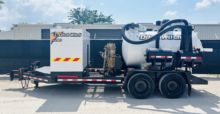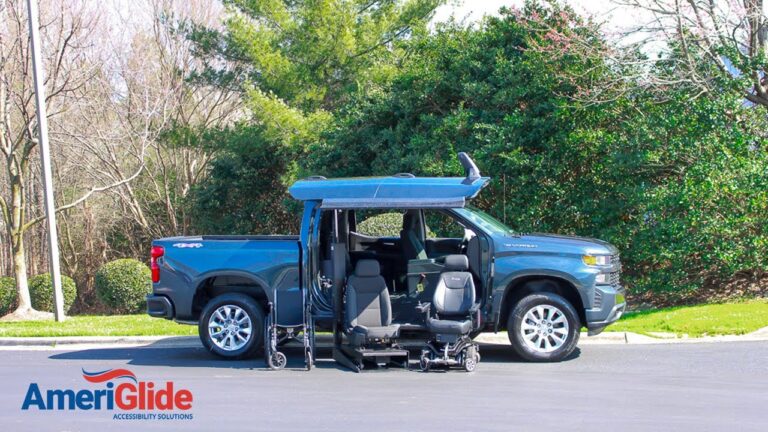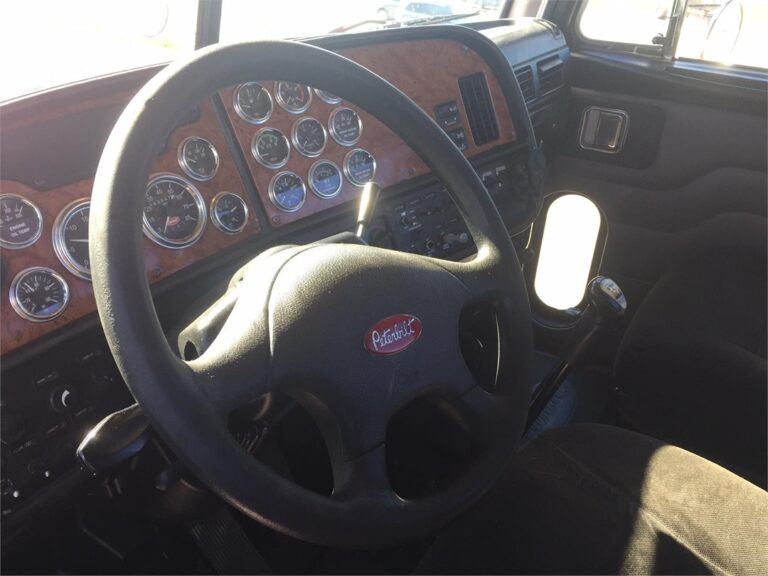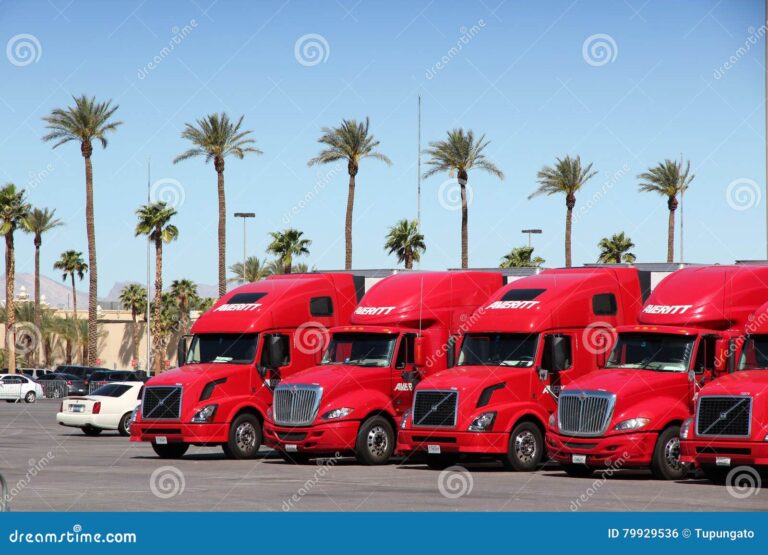Hydrovac Trucks For Sale: Your Comprehensive Guide to Non-Destructive Excavation Solutions
Hydrovac Trucks For Sale: Your Comprehensive Guide to Non-Destructive Excavation Solutions cars.truckstrend.com
In the demanding world of underground infrastructure, utility maintenance, and construction, precision and safety are paramount. Traditional excavation methods, while effective for some tasks, pose significant risks to buried lines, pipelines, and cables. This is where the hydrovac truck steps in, revolutionizing the industry with its non-destructive excavation capabilities. If you’re looking to enhance your operational efficiency, improve safety records, and expand your service offerings, exploring Hydrovac Trucks For Sale is a strategic move.
This comprehensive guide will delve into everything you need to know about these powerful machines, from their fundamental operation to crucial purchasing considerations, helping you make an informed decision that drives your business forward.
Hydrovac Trucks For Sale: Your Comprehensive Guide to Non-Destructive Excavation Solutions
What is a Hydrovac Truck and How Does It Work?
A hydrovac truck, often referred to as a vacuum excavator, is a specialized piece of heavy equipment designed for non-destructive digging. Unlike traditional excavators that use mechanical force, hydrovac trucks employ a combination of high-pressure water and a powerful vacuum system to precisely and safely excavate soil.
The process is remarkably efficient:
- Water Jetting: A high-pressure water stream is directed at the ground, effectively breaking up and liquefying the soil. This high-pressure water can cut through various soil types, including clay, sand, and even frozen ground, without damaging delicate underground utilities.
- Vacuum Suction: Simultaneously, a powerful vacuum system, driven by a large positive displacement blower or liquid ring pump, suctions the resulting slurry (a mixture of water and soil) into a large debris tank on the truck.
- Containment: The excavated material is safely contained within the debris tank, ready for transport and disposal, minimizing environmental impact and site cleanup.

Key components of a hydrovac truck typically include: a robust chassis, a large water tank, a powerful water pump, a high-capacity debris tank, a strong vacuum system (blower/pump), a versatile boom that can articulate and extend, and an intuitive control panel. This sophisticated design allows operators to perform precise excavation from a safe distance, making it an indispensable tool for modern construction and utility work.
Why Invest in a Hydrovac Truck? Benefits & Applications
The decision to invest in a hydrovac truck goes beyond simply acquiring new equipment; it’s about embracing a safer, more efficient, and more versatile approach to excavation.
Key Benefits:
- Enhanced Safety: The most significant advantage is the drastic reduction in the risk of striking buried utilities. By eliminating the need for aggressive mechanical digging, hydrovac trucks protect gas lines, fiber optic cables, water mains, and electrical conduits, preventing costly damages, service interruptions, and potentially dangerous accidents.
- Precision Excavation: Hydrovac technology allows for highly controlled and precise digging, ideal for exposing specific lines, potholing, or working in confined spaces where traditional equipment cannot operate.
- Increased Efficiency: While the initial digging might seem slower than a conventional excavator, the overall project time is often reduced due to less need for manual labor, fewer utility strikes, and faster backfilling with the removed material (if desired).
- Versatility: Hydrovac trucks are not limited to just digging. Their powerful vacuum capabilities make them suitable for a wide range of tasks.
- Reduced Environmental Impact: The precise nature of hydro excavation minimizes ground disturbance, leading to less soil displacement and easier site restoration. The contained spoil also prevents contamination spread.
- Cost-Effectiveness: Over the long term, the prevention of utility strikes, reduced labor costs, faster project completion, and minimized restoration expenses translate into significant savings and improved profitability.


Common Applications:
- Potholing/Daylighting: Exposing buried utilities for inspection, repair, or relocation.
- Trenching: Creating narrow, precise trenches for new utility installations or repairs.
- Culvert & Catch Basin Cleaning: Efficiently removing sediment and debris from drainage systems.
- Remote Excavation: Reaching areas inaccessible to traditional equipment using extended hoses.
- Slot Trenching: Digging narrow, deep trenches for specific pipe or cable installations.
- Drilling Mud Removal: Cleaning up drilling fluids and spoils from oil and gas sites.
- Spill Cleanup: Safely and effectively vacuuming up hazardous or non-hazardous spills.
- Pipeline & Facility Maintenance: Exposing and maintaining critical infrastructure.
- Pile Cap & Footing Excavation: Preparing foundations with precision.
Key Considerations When Buying a Hydrovac Truck
Purchasing a hydrovac truck is a significant investment, and careful consideration of several factors will ensure you select the right machine for your specific operational needs.
1. New vs. Used: The Great Debate
- New Hydrovac Trucks: Offer the latest technology, full manufacturer warranties, customizable options, and peace of mind regarding performance and reliability. They come with a higher upfront cost but often have lower immediate maintenance needs.
- Used Hydrovac Trucks: Can be a more budget-friendly option, allowing smaller businesses to enter the market or larger ones to expand their fleet without a huge capital outlay. However, they require thorough inspection, a review of service records, and an understanding of potential wear and tear. Warranties are often limited or non-existent.
2. Chassis Specifications
The truck’s foundation is crucial. Consider:
- Axle Configuration: Tandem axle (typically 33,000 lbs GVWR) for smaller jobs and better maneuverability, or tri-axle (50,000 lbs+ GVWR) for larger capacities and heavier loads.
- Engine Power: Adequate horsepower and torque are essential for powering the PTO (Power Take-Off) for the hydrovac system and handling heavy loads.
- Maneuverability: Consider the typical job sites. Will you be operating in tight urban environments or open rural areas?
- GVWR (Gross Vehicle Weight Rating): Ensure the truck’s GVWR can safely accommodate the full weight of the water, debris, and the truck itself.
3. Vacuum System Performance
This is the heart of the hydrovac’s digging power.
- Blower Type:
- Positive Displacement (PD) Blowers: Common, reliable, and provide consistent vacuum power.
- Liquid Ring Pumps: Often used for heavier, wetter materials, providing excellent vacuum depth and handling more moisture.
- CFM (Cubic Feet per Minute): Measures the volume of air the blower can move. Higher CFM means faster suction. Ranges typically from 3,000 to 6,000+ CFM.
- Vacuum Pressure (Inches of Mercury – Hg): Indicates the suction strength. A higher Hg rating (e.g., 27" Hg) means greater pulling power, especially for dense materials or long hose runs.
4. Water System Capabilities
The water system determines the cutting power.
- Water Pump Pressure (PSI): Typically ranges from 2,000 to 4,000 PSI. Higher pressure cuts through tougher soils more effectively.
- Flow Rate (GPM – Gallons Per Minute): Indicates how much water the pump delivers. Higher GPM allows for faster digging.
- Water Tank Capacity: Ranges from 500 to 2,000+ gallons. Larger tanks allow for longer operating times without refilling, crucial for remote jobs.
- Water Heating System: Essential for cold climates to prevent freezing and to improve digging efficiency in frozen ground.
5. Debris Tank Capacity and Features
- Capacity: Measured in gallons or cubic yards (e.g., 800 to 3,000+ gallons). Match capacity to job size to minimize trips to the disposal site.
- Material: Steel (durable, heavier) or aluminum (lighter, corrosion-resistant, but potentially less robust).
- Dumping Mechanism: Hydraulic tilt dump for easy and efficient material discharge.
- Cleanout & Washdown: Features for easy cleaning and maintenance of the tank.
6. Boom and Auxiliary Features
- Boom Reach & Articulation: How far and in what directions can the boom extend and move? A longer, more flexible boom enhances versatility.
- Remote Controls: Essential for safe and efficient operation from a distance.
- Winterization Packages: Crucial for cold weather operation, including heated cabinets, insulated lines, and water heaters.
- Toolboxes & Storage: Adequate space for tools and accessories.
- Washdown Guns: For cleaning the truck and equipment on-site.
- Camera Systems: For enhanced visibility during operation.
7. Maintenance, Support, and Regulations
- Manufacturer Support: Availability of parts, service centers, and technical support.
- Warranty: Understand what is covered and for how long, especially for new trucks.
- Regulatory Compliance: Ensure the truck meets all federal, state, and local Department of Transportation (DOT) and environmental regulations.
Where to Find Hydrovac Trucks For Sale
The market for hydrovac trucks is diverse, offering various avenues for purchase:
- Authorized Dealerships: The primary source for new trucks, offering full warranties, financing options, and often certified used models. They provide expert advice and after-sales support.
- Specialized Equipment Websites: Online platforms like TruckPaper.com, IronPlanet, EquipmentTrader, and Ritchie Bros. Auctioneers often list a wide range of new and used hydrovac trucks from various sellers.
- Online Classifieds & Marketplaces: Sites like Craigslist or local classifieds can sometimes list individual sales, though these require extra caution and verification.
- Auctions: Public and private auctions can be excellent places to find used hydrovac trucks at competitive prices, but thorough inspection is paramount as sales are typically "as-is."
- Direct from Manufacturers: Some manufacturers may offer direct sales, especially for custom builds or fleet orders.
- Used Equipment Brokers: Brokers specialize in finding specific types of heavy equipment, potentially connecting you with sellers not publicly advertising.
- Fleet Upgrades: Keep an eye out for reputable contractors or municipalities upgrading their fleets; they often sell well-maintained used equipment.
Tips for a Successful Purchase
- Define Your Needs: Before looking, clearly outline the types of jobs you’ll perform, typical soil conditions, climate, and desired daily operating hours. This will narrow down your options.
- Set a Realistic Budget: Factor in not just the purchase price but also financing costs, delivery, insurance, training, and initial maintenance.
- Thorough Inspection (for Used Trucks):
- Engine & Drivetrain: Check for leaks, unusual noises, fluid levels.
- Hydrovac System: Test the water pump, vacuum blower, boom articulation. Listen for unusual sounds.
- Tanks: Inspect for cracks, rust, or damage. Ensure the debris tank seals properly.
- Hydraulics: Check hoses, cylinders, and pumps for leaks.
- Frame & Undercarriage: Look for signs of stress, rust, or previous repairs.
- Electrical System: Test all lights, gauges, and controls.
- Tires & Brakes: Assess wear and condition.
- Get a Professional Inspection: If possible, hire a qualified mechanic specializing in heavy equipment or hydrovac trucks to perform a pre-purchase inspection.
- Review Service Records: For used trucks, a complete service history can provide invaluable insight into how well the truck was maintained.
- Test Drive/Operate: Don’t just look at it; operate it. Run the hydrovac system through its paces to ensure everything functions as expected.
- Negotiate: Always be prepared to negotiate the price, especially for used equipment.
- Consider Financing: Explore various financing options from banks, equipment finance companies, or manufacturer financing programs.
- Factor in Operating Costs: Beyond the purchase price, consider fuel, water, disposal fees, ongoing maintenance, and labor costs.
Hydrovac Truck Price Guide (Estimates)
The price of a hydrovac truck varies significantly based on its age, condition, manufacturer, capacity, and included features. The table below provides estimated ranges for typical models. These figures are subject to market fluctuations, regional differences, and specific configurations.
| Type of Truck | Debris Tank Capacity (Gallons) | Water Tank Capacity (Gallons) | Vacuum Blower (CFM) | Price Range (USD) | Key Features/Notes |
|---|---|---|---|---|---|
| New Entry-Level | 800 – 1,200 | 500 – 800 | 3,000 – 4,000 | $280,000 – $400,000 | Smaller chassis, basic features, suitable for potholing & light trenching. Full warranty. |
| New Mid-Range | 1,200 – 1,800 | 800 – 1,200 | 4,000 – 5,000 | $400,000 – $550,000 | Common configuration, good balance of capacity & maneuverability. May include water heater, wireless remote. |
| New High-Capacity/Premium | 2,000 – 3,000+ | 1,200 – 1,800+ | 5,000 – 6,500+ | $550,000 – $750,000+ | Tri-axle, powerful vacuum, large tanks, advanced controls, winterization package, long boom reach. For heavy-duty, continuous work. |
| Used (5-10 years old, good condition) | 800 – 1,500 | 500 – 1,000 | 3,000 – 4,500 | $150,000 – $280,000 | Well-maintained, may show cosmetic wear. Often good value for money. Inspection critical. |
| Used (10+ years old, fair condition) | 1,000 – 2,000 | 600 – 1,200 | 3,500 – 5,000 | $80,000 – $180,000 | Higher mileage/hours, may require immediate maintenance. Best for those with in-house repair capabilities or tight budgets. |
Note: These are estimates. Prices can vary significantly based on manufacturer, specific features, market demand, and economic conditions.
Frequently Asked Questions (FAQ) About Hydrovac Trucks For Sale
Q1: How much does a hydrovac truck typically cost?
A1: The cost varies widely. New hydrovac trucks can range from $280,000 to over $750,000 depending on size, features, and manufacturer. Used trucks can be found for $80,000 to $280,000+, depending on age, condition, and specifications.
Q2: What’s the main difference between a hydrovac truck and a standard vacuum truck?
A2: A standard vacuum truck primarily sucks up liquids and slurries (e.g., septic waste, industrial liquids). A hydrovac truck, while also having vacuum capabilities, is specifically designed for non-destructive excavation using high-pressure water to break up soil before vacuuming it.
Q3: Is it better to buy a new or used hydrovac truck?
A3: It depends on your budget, operational needs, and risk tolerance. New trucks offer reliability, warranty, and customization but at a higher cost. Used trucks are more affordable but require thorough inspection and may have higher immediate maintenance needs. For businesses starting out or expanding on a budget, a well-inspected used truck can be a smart choice.
Q4: What kind of maintenance do hydrovac trucks require?
A4: Hydrovac trucks require regular maintenance similar to other heavy trucks, including engine and chassis servicing (oil changes, filter replacements, brake checks). Additionally, the hydrovac system components need attention: regular cleaning of tanks, checking water pumps and vacuum blowers, boom lubrication, and inspecting hoses and nozzles for wear. Winterization is crucial in cold climates.
Q5: Do I need a special license to operate a hydrovac truck?
A5: Yes, in most jurisdictions, operating a hydrovac truck requires a Commercial Driver’s License (CDL) due to its size, weight, and air brake systems. Specific endorsements (e.g., for air brakes, tanks) may also be required depending on the truck’s GVWR and capacity. Always check local and federal regulations.
Q6: What are the typical operating costs for a hydrovac truck?
A6: Operating costs include fuel (diesel), water (can be significant if not sourced efficiently), labor for operators, disposal fees for excavated material, and ongoing maintenance parts and service. These costs can vary based on job type, duration, and regional pricing for fuel and disposal.
Conclusion
Investing in a hydrovac truck is a powerful decision that can significantly enhance your business’s capabilities, safety profile, and profitability. By enabling non-destructive excavation, these versatile machines protect valuable underground infrastructure, streamline operations, and open doors to a wider range of projects.
Whether you opt for a brand-new, state-of-the-art model or a well-maintained used unit, a thorough understanding of their components, capabilities, and the critical factors involved in the purchasing process is essential. By carefully considering your needs, budgeting wisely, and performing diligent inspections, you can acquire a hydrovac truck that will serve as a cornerstone of your operations for years to come, solidifying your position as a leader in safe and efficient excavation.






